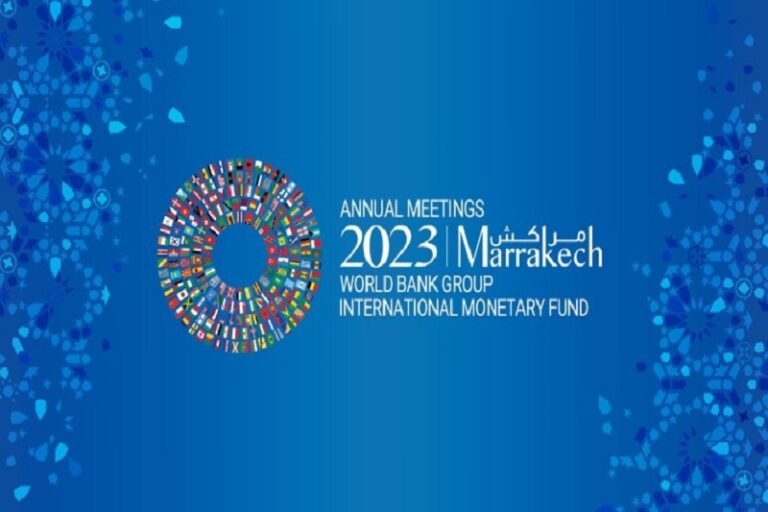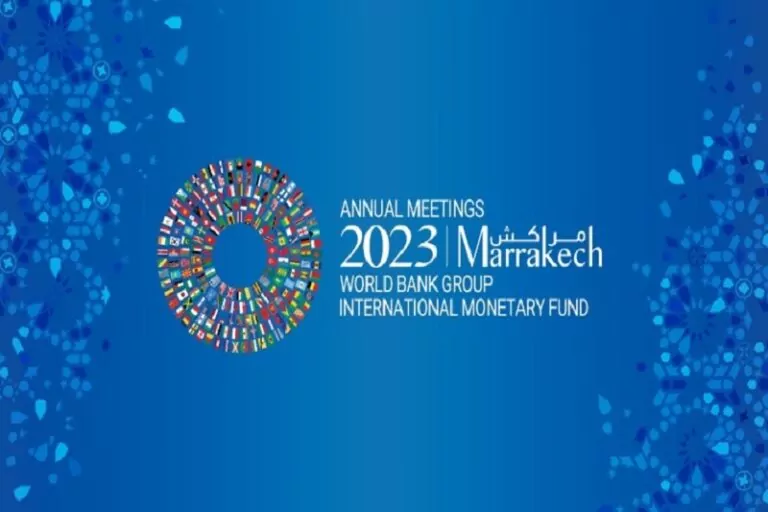

imf and world bank annual assemblies in morocco 20231003033726
During the annual meetings of the IMF and the World Bank in Marrakech, the IMF’s Middle East and Central Asia Department highlighted the institution’s agile response to the challenges faced by countries in a world prone to economic shocks. Over $80 billion has been made available for programs, emergency funding, and SDR allocation since 2020. Additionally, the newly established Resilience and Sustainability Facility is extending support to six countries, including Morocco.
This year’s annual meetings are historical as they mark the first time in fifty years that the World Bank and the IMF are convening on the African continent. The meetings provide a unique platform to address pressing global economic issues.
One of the major concerns discussed during these meetings is the sustainability of rising debt levels. Inflation rates are on the rise, which may lead central banks to maintain higher interest rates. This scenario strains the ability of borrowers to repay loans, putting debt sustainability at risk. The IMF’s Africa Department warns that “debt vulnerabilities remain elevated” and medium-term growth rates are lagging.
Abebe Aemro Selassie, director of the IMF’s Africa Department, expressed concern about the ongoing discussions on debt cancellation. He cautioned against the idea of a simple “magic wand” that could erase debt or solve complex economic difficulties. In particular, he emphasized that debt forgiveness isn’t a straightforward process, as creditors, including household debt, which accounts for 50% of total debt in Sub-Saharan Africa, need to be considered. The principle of debt cancellation should be applied on a country-by-country basis.
Simultaneously, global activists have organized to create a counterforce for the approximately 10,000 attendees, including bankers, corporate CEOs, and government bureaucrats. They aim to address the challenges of debt and work toward equitable solutions, emphasizing the need to consider each nation’s unique circumstances.
Despite conflicts, inequality, and climate change challenges, the world’s leading economic policymakers have convened in Africa. Their discussions highlight the complexities of addressing debt sustainability and emphasize the importance of prudent financial management for continued global economic growth and stability.
South African President Cyril Ramaphosa defended his nation against claims of white discrimination made by tech magnate Elon Musk. After…
Hilton launched Signia by Hilton for its first appearance in Egypt and Africa through its hotel expansions. These hotels at…
UNICEF reported that, nearly 2900 people died of cholera across Eastern and Southern African countries while children suffer most greatly…
Enza, based in the United Arab Emirates, obtained $6.75 million in initial investment funding from Algebra Ventures and Quona Capital.…
US Secretary of State Marco Rubio ordered South African Ambassador Ebrahim Rasool to leave America by March 21 because he…
Early 2025 ends with IPL fever in India and cricket fans receive good news of an international schedule full of…
This website uses cookies.